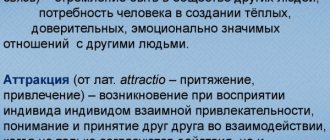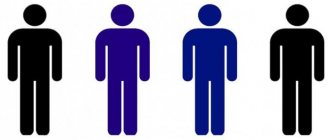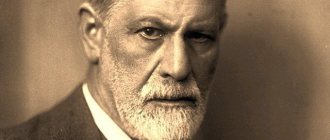To live according to conscience, in harmony with nature - you can often hear such a recommendation, and in general, everything seems to be extremely clear here. But if you try to figure out what exactly this means, many questions arise. Let’s assume that with the recommendations to “live in harmony with nature” everything is more or less clear, although here too sometimes there are various misunderstandings that sometimes do not fit into the head.
For example, a person may claim that he does not eat meat, but in reality it turns out that in his understanding, fish, seafood, and sometimes even chicken do not belong to meat. Apparently they grow on a tree. Therefore, on the issue of living “in harmony with nature,” there are also many misunderstandings. However, in general, everything is clear here - do not harm living beings. The concept of “harm” is also a relative concept, and everyone puts something of their own into it, but we won’t go deeper.
Much more interesting is the question of what is conscience? And what does it mean to “live according to conscience”? Remember when you were a child? It happens that you commit some unpleasant act, and your parents immediately ask a rhetorical question in a sort of stern voice: “Do you have a conscience?” And you stand there and don’t know what to answer. You intuitively feel that you can’t answer “No,” but saying “Yes” is also stupid, because at that age you don’t really know whether you have it, this conscience, or not. And anyway, what kind of beast is conscience? So you stand there, silent, bored... And the angry parent continues to pour out rhetorical questions, telling you something like: “Am I talking to the wall?” You really don't feel at ease here. And it’s no longer time to ask whether you have a conscience - it would be better to get out of such a mess and get away with a couple of hours in one of the corners of your home.
However, the years go by. The understanding of good and evil is changing. And sooner or later we begin to understand at some deep level what conscience is. No, we may read it in the dictionary, and the teacher at school will tell us something about conscience, but this is not the same, this is all, as they say, from the mind. And understanding of conscience must come from the soul, from the heart. And it is at some deep level that we begin to distinguish between what it means to “live according to conscience” and what it means vice versa. This true feeling, this true knowledge is in each of us. You can’t read about it in books; this understanding either exists or is hidden under a layer of our delusions and delusions.
The first time conscience manifests itself in deep childhood, we, of course, do not know that this is what it is - conscience. But we are starting to feel it. This is the feeling when, for example, having kicked a harmless and defenseless kitten, we then feel dirty in our souls all day. And at night we can't sleep. We do not yet understand what is happening to us, but it is important that it is happening.
Years go by... And each of us goes our own way. Someone crushes this conscience within themselves. He kicks her like a stray dog every time she tries to bark at us or bite us at the moment when we commit an unworthy act. And someone, on the contrary, cultivates this conscience in himself, begins to listen to it, begins to synchronize his entire life with its voice. And such conscience becomes a person’s natural state, his natural understanding of what is good and what is bad.
This is not the understanding that is sometimes gleaned from some smart books. The “bookish” understanding of conscience often becomes simply a dogma, and such a person puts everyone, as they say, “with the same brush”... Instead of a conscience, such a person has some kind of bookish-religious formula that divides this world into black and white. And everything that doesn't look like black is white, and everything that doesn't look like white is black. But this world is diverse, and there are many shades in it. Therefore, this position towards him is fundamentally wrong. This is important to understand.
Conscience is... Definition of the concept, meaning of the word conscience
CONSCIENCE
is a sense of moral responsibility for one’s behavior; internal assessment of one’s actions, moral principles.
CONSCIENCE
- this is a person’s ability to critically evaluate his actions, thoughts, desires, to realize and experience his inconsistency with what is morally proper.
CONSCIENCE
- this is a person’s internal assessment of his behavior, self-esteem, a constant mental analysis of successes and failures, worthy and unworthy (smart and stupid, right and wrong, etc.) actions.
Essay reasoning Conscience
Conscience is a terrible creature from which you will never have peace. So I think.
They just say that you can always get away from everything: from the laws, from the police, from other people, in general. But you can’t escape yourself! And this voice in your head will “nag” that you did wrong, that you need to do this and that. And not only the voice, but there may also be dreams, all sorts of signs. That is, everything seems to you, everything reminds you that you are wrong.
I think part of conscience is rules learned in childhood. They have entered so deeply into our consciousness and subconscious! Our parents directly voiced them to us; we find these rules in books and fairy tales. This is about the need to be honest, to help people... I think that our conscience and that of African peoples are still somewhat different.
For some, it’s normal to eat a person and not worry, but to think, on the contrary, that they helped him. And then you step on a person’s foot in a crowd, and then you can’t sleep - your conscience torments you. You scold yourself, like I’m so clumsy...
They also say that we can convince other people, even ourselves, of something, give many, many arguments that we did the right thing, but we cannot agree with our conscience. She knows how to do it!
Here is another thought: conscience expresses a person’s connection with a certain “common subconscious”. And they only know how to do it right. Maybe there are even angelic beings there and vice versa that give us hints. By the way, in cartoons the conscience is usually angelic. She suggests the right actions.
I read Weller's story about how one man took the blame for a common crime that could easily have been hidden. But the man seemed to be tormented by his conscience... And he wanted to set others up too, and they threw all the blame on him. Here the idea is not to confuse the voice of conscience with one’s suspiciousness and the like.
Conscience is also about understanding that this world is not limited only by our relationships or money. I often think that it would be better if I didn’t get involved in something, but my conscience would be clear. Waste your energy trying to convince yourself, your conscience, of something? Having trouble sleeping at night due to nightmares? No, no benefits are worth it.
The main thing is harmony with yourself, calmness, happiness. And hence health! And a nagging conscience only undermines your foundation, so it’s better not to risk your emotional state, but also not to think of anything out of nowhere.
The concept of "conscience"
The word “conscience” apparently comes from “co-know,” that is, “to know together with others.” This implies knowledge about oneself. A person is controlled by his conscience, which is not so easy to “persuad” or “calm down”; if someone “hears” his condemning voice, he experiences remorse. You can try to drown out her voice within yourself, you can “forget” about her for a while, but it is impossible to completely eradicate her. Anyone who does not live according to conscience experiences deep internal discord, which, even remaining unconscious, one way or another, often very seriously, and sometimes detrimentally, affects his mental and physical health.
Option 3
When we were little, we were often told: “Do you have a conscience?”, “Isn’t the council tormenting you?” and so on. But we never attached any importance to this, and why? But when you do think about it, you can search for an answer for a long time.
The first thing, when asked, you answer, well, conscience is when you did something, and then you are tormented by thoughts about it.” And perhaps this is true.
You do something and then you think. Perhaps you could have done it differently or not done it at all. You do an action, but you don't like the result.
From childhood you cultivate a conscience in yourself. Your parents tell you what is good and what is bad.
Conscience helps you keep control of your emotions. In total, conscience is a chain connecting the qualities and character of a person.
To answer this question, a few words or entire books are enough at the same time. This question can be answered unequivocally.
Conscience is like a person who monitors our actions. She fights with justice in the life of every person. This is a sense of proportion to the words we have spoken. Conscience is the most important feeling that prevents us from making mistakes in life.
It happens that you stole something, lied to your friends or parents, and your conscience torments you. After that, you go and tell them the truth, because it was your conscience that forced you to do this.
Ultimately, you understand that this is a person’s feeling, showing his moral principles. And these principles are different for everyone.
When your conscience torments you, this is the most terrible feeling you can have. This feeling especially occurs when the situation cannot be corrected, when time cannot be turned back. And then you remember this moment with pain.
Arkady Petrovich Gaidar wrote a small but wonderful story “Conscience” describing all the shame of this feeling. Nina did not go to class, deciding to skip it. But after she met the boy, I think the girl learned her lesson and will not repeat this mistake again. This story is a vivid example of what conscience is; it reflects all its sides.
In the end, I want to say that never neglect your conscience, it may end badly for you, as it could have ended with Nina and with you if you didn’t have it.
Origins of conscience
The phenomenon of conscience confirms that morality is an organic part of the human personality, and therefore the definition of a reasonable person at the same time as a moral person can be considered quite justified. People are moral to varying degrees, but it is hardly possible to find a mentally normal person who is absolutely devoid of any moral principles. The organic nature of morality for a person is clearly expressed in how the experience of shame manifests itself: he blushes, he becomes hot, stuffy, he does not know where to put himself, he averts his eyes, etc.
Conscience in Freud's understanding
Sigmund Freud devoted a significant part of his scientific work to the study of conscience. In particular, he writes about it in the works “I and It” and “Cultural Discontent.” He discovered that conscience begins to form in childhood , and is influenced by both innate factors and life experiences. In his works, Freud defines conscience as the internal perception that certain desires are unacceptable.
From Freud's point of view, the formation of conscience is associated with psychosexual development. A small child knows nothing about morality, morality, justice, aesthetics and other categories that define conscience. He can be called immoral, because he does not yet know how to limit himself in his desires and does not understand why some actions can be bad. Therefore, the role of conscience for a child is played by parents - they punish and encourage him, making it clear what behavior is desirable for him.
Subsequently, the influence of parents and mentors weakens, and a partially formed conscience begins to perform the functions of containment. Freud proposed to consider a certain entity (he called it the “Super-Ego”), which prescribes certain internal prohibitions and requirements for a person , playing the role of a moral and ethical limiter. At the same time, he considered the authority of his parents to be the foundation for his newly formed conscience.
In Freud's understanding, conscience is an internal censor that makes strict demands on a person. This “censor” is not able to completely prevent unwanted actions, but subsequently subjects the person to painful rumination, punishing him for bad deeds. In the future, a person will prefer to listen to his conscience, knowing in advance what consequences await him otherwise.
Thus, Freud attributes a dual nature to conscience. On the one hand, it represents a virtue that provides a person with moral, moral and ethical self-control. On the other hand, it is a harsh internal judge who can subject a person to unnecessarily severe moral punishment and even provoke a mental disorder.
Function (role) of conscience
The precious asset of humanity is the creation of ideas about conscience. It obliges a person to put himself in the place of his neighbor, allows him and even forces him to do everything possible to alleviate the condition and fate of the people around him. The sense of conscience obliges a person to exercise moral self-control, formulate moral duties for himself, control his thoughts and actions, and carry out strict self-assessment up to the point of remorse.
Conscience is a measure of consciousness. The mind gives one option for behavior. The feeling is different. And let different motives guide a person in choosing a decision or action, since conscience leads in a moral duet, the outcome will be correct.
Conscience has an educational effect, since it forces a person to be demanding of himself and not to be satisfied with his current state.
Conscience performs a controlling function in relation to any actions and goals of an individual, his behavior. This function can be expressed in remorse, reproach, regret about what has already been done, or act as an active volitional element of moral consciousness (preventive function), restraining the individual from committing something. actions or forcing him to do something. action, deed. It is the second that has a positive value, since thanks to it it is possible to avoid evil, any manifestations of immorality, and not to lose one’s own dignity and honor. It can also motivate a person to perform specific morally approved actions.
Conscience is demanding and unyielding. She orders us to exercise moral self-control, to independently formulate moral duties for ourselves, to demand that we fulfill them, to make a self-assessment of our actions—to analyze, weigh, and pass our behavior, desires, and aspirations through the filter of reason. In such rationalism, such rationality, morality precedes calculation, and not the calculation of morality.
And if moral criteria are the basis, then this is a sure guarantee that it is impossible for a person to adapt to evil in any of its guises, or to make a deal with conscience, even when a person is placed in extremely difficult situations.
Conscience —
one of the expressions of moral self-awareness and well-being of an individual. Conscience is a kind of fusion of rational awareness, sensory experience and volitional effort in the human psyche. Conscience “turns on” only when a person knows moral standards. If he does not know them (“morally innocent”), then his conscience cannot speak. To worry about your own deviation from moral values, you need to know them and accept them as personally significant. Conscience most acutely expresses a feeling of moral satisfaction or dissatisfaction (“clean” and “unclean” conscience), appears in the form of deep emotional experiences of the individual (remorse, pangs of conscience).
Conscience has formed in people feelings of sympathy, compassion, and mercy.
Consciousness of conscience occupies a special role in spiritual life and in human behavior. It is no coincidence that a dishonest person is given the following reproach: “You have no conscience!” Conscience in such cases becomes synonymous with all morality. Of course, the moral world of a person is not limited to the consciousness of conscience. But it is obvious that it is conscience, in interaction with duty, that is, perhaps, the main regulator of the movements of the human soul and stimulates many of its other moral feelings and aspirations. A person’s conscience separates good from evil, creates a feeling of shame for unworthy actions, and encourages one to remember the need to leave a good reputation for oneself. Conscience presupposes a person’s ability to look at himself from the outside and evaluate his actions from the point of view of other people.
Examples of manifestations of conscience
Conscience is a complex psychological phenomenon that takes many different forms. Most often it manifests itself as:
- a corrective factor that forces you to change your behavior in accordance with ideas about morality and morality;
- motivating factor that forces a person to purposefully take actions that correspond to his ideals;
- a prohibiting factor that does not allow you to commit bad deeds for which you will be ashamed in front of others or yourself;
- an evaluative factor that forces us to evaluate every action committed and has a corresponding impact on the psycho-emotional state.
Conscience does not allow a person to ignore the presence of choice. If there is an opportunity to do (or not do) something that will affect the well-being of others, conscience draws our attention to this choice, preventing us from passing it by. In addition, conscience constantly evaluates the ethics of our thoughts, making us feel guilty even if no bad actions followed these thoughts.
Quotes about conscience
Many famous people, whether scientists or writers, gave their statements about conscience. Some of them:
- A clear conscience is not afraid of lies, rumors, or gossip (Publius Ovid Naso).
- Honor is external conscience, and conscience is internal honor (Arthur Schopenhauer).
- You cannot live without a conscience and with great intelligence (Maxim Gorky).
- Never act against your conscience, even if state interests require it (Albert Einstein).
- How can the heart not be content when the conscience is calm! (Denis Fonvizin).
About a person's conscience
Conscience is a quality of a person that does not allow people to live in peace if they have committed an unseemly act. Let's look at this statement with examples.
In our lives there are many people with a heightened sense of conscience. This affects their actions. They are not capable of betraying, cannot lie for their own benefit, and will not interfere or envy when moving up the career ladder. It seems to them that later it will be difficult to look a person in the eyes and talk to him. They think that they have no right to interfere in someone else's life, because they themselves would be hurt if someone else did the same. Most of them are people living in absolute reality. Usually they do not stand out among others, do not seek justice for themselves, and do not push anyone aside for personal gain. Conscience is formed at the very beginning of a person’s life – in childhood. This quality is brought up by parents and only by personal example. It then develops during the school years. However, some children and adolescents retain and develop this quality, while others try to suppress it and exchange it for other, personal feelings.
Why do we need conscience these days if it brings neither wealth nor money? No high position. If in any position you are required to be an obedient employee and follow the instructions of your superiors, despite the fact that your conscience resists this. However, a person always has a choice. He is often not ready for it, but a conscientious person will find the right solution. There is a short story in literature, it is called “Conscience”, written by Arkady Gaidar. The heroine of this work decided to skip class because she had not learned algebra. She went into the grove. It was very nice there, Nina ran after a butterfly and came across a baby who was holding an ABC book in his hand. Nina joked, saying that he was skipping school. However, the boy answered her that he was not playing truant, but got lost because of a large dog, which he was afraid of. Nina took him by the hand and led him through the grove. Then she returned for the books. The dog has already eaten her breakfast, but hasn’t touched the books. Nina cried because she was ashamed. After all, even the baby understood that it was impossible to skip. The author writes that she was “gnawed by a merciless conscience.” Of course, conscience can be merciless if a person has violated his principles and forgotten about the moral laws of life.
Thus, everyone needs to have a conscience. After all, people live in society, and everyone wants to communicate with worthy people and be sure that you are treated with respect.
Conscience is, in simple words, that special feeling
which distinguishes us from animals . This is the moral basis of man. Only those who have a conscience will be able to judge themselves. Conduct an internal dialogue with yourself, act as both a defender and an accuser.
It’s interesting whose position is closer to the term “conscience,” a pessimist or an optimist. In my opinion, it is closer to healthy pessimism, since optimism is such that it will pull everything that is possible, or maybe not, into its favor.
The modern world literally terrorizes people with calls to remain optimistic in all life situations. Based on the postulates of positive thinking, a huge industry of trainings, courses, and various self-development programs has grown.
People who tend to have less than positive perspectives feel uncomfortable in the company of motivated colleagues. Meanwhile, in our survival it is negative experience that is decisive .
Photos from pictures yandex.ru
Recently, psychologists have doubted the effectiveness of an artificial cloudless mood. After all, maintaining it is very expensive. And we thought about the constructive role of healthy pessimism.
What is remorse?
Committing a sin for the first time, a person feels a certain [internal] conviction and experiences. Having committed the same sin again, he experiences less conviction, and if he... is inattentive and continues to sin, then his conscience hardens.
The devil often finds an excuse for sins, and instead of admitting: “I did it to trample my conscience,” she justifies herself: “I did it so that the Elder would not be upset.” He turns the tuning knob to a different frequency so that we don't see our wrongdoing. One woman, coming to her confessor for confession, sobbed inconsolably and repeated the same phrase: “I didn’t want to kill her!” “Listen,” the confessor began to reassure her, “if you have repentance, then God has forgiveness of sin. After all, He forgave the repentant David.”
Read also: Women's looks with jeans
Joys cover sin, drive it deeper, but it continues to work from the inside. Thus, a person tramples on his conscience and therefore begins to harden, and his heart slowly becomes salty. And then the devil finds an excuse for him in everything: “This is a trivial matter, but this is a natural thing...” However, such a person has no peace, because the disorder driven deep does not stop. He feels restless and lacks inner peace and silence. He lives with incessant torment, suffers and cannot understand the reason for all this, because his sins are covered from above, driven deep down. Such a person does not understand that he suffers from having committed a sin.
Interesting facts[edit]
- Alexander Andreevich Chatsky, member of the public organization “Woe from Wit!” was a fighter for freedom of conscience. He understood what the hell was going on in the world and how to fight it, but because of his ideas, he was mistaken for a madman and kicked out of the Famusovs’ house (what a shame!). This once again proves that conscience is evil.
- Without a conscience, a person ceases to be afraid of quite ordinary things, for example, how to behave on the bus, at school, and even how to ruin a friendly party! (what a shame!)
- Conscience often guides people's life principles. And, no matter how embarrassing it is for the project, it’s a real fact!
| p·o·v Conscience is a threat to the health of the nation | ||
| Congenital | Life Shereshevsky-Turner syndrome | ☣ |
| Autoimmune | Wegener's granulomatosis Sclerosis | |
| Inflammatory | Inflammation of cunning · Runny nose · Paraproebosis | |
| Infectious | Gangnam Style · Cormorant · Chickenpox · Vicnutity · Human Absurd Deficiency Virus · Hemorrhoids · Hunger · Money · Heresy · Yawning · Hebrew · Intelligence · Karaoke · Kleptomania · Coronaviruses ( SARS-CoV · MERS-CoV · SARS-CoV-2 · BullS- CoW · COVID-19 ) · Malaria | |
| Personality disorders | Advegolism · Bodybuilding · Cycling · Depression · Dinosis · Drunken sobriety · Mirror disease · Illusionism · Latent intellectuality · Insanity · Icing · Orthodoxy of the brain · Split personality · Brown syndrome · Evil dad syndrome · Conscience · Uroencephaly · Feeling of deep satisfaction · Schizophasia · Schizophrenia · Tourette's syndrome · Cerebral phimosis · Epilepsy | |
| Sexual deviations | Heterosexuality · Gnomosexuality · Woodsexuality · Technophilia · Using IE | |
| Toxicoses | Spermotoxicosis | |
| Philias and manias | Abstinence syndrome · Arithmomania · Bibliophilia · Moderator complex · Crocodilia · Delusions of grandeur · Persecution delusions · Pedophilia · Sportsaholism · Philosophy · Philoyachtia | |
| Phobias | Arachnophobia · Hexakosioyhexekontahexaphobia · Xenophobia · Fear of mice · Nonunicalsophobia · Paranoia · Numerophobia · Yaphobia · The whole list | |











